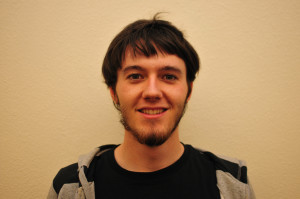Curious students and faculty alike gathered last Thursday at the Student Union building to listen to DVC professor Dr. Araim speak about a religion which roughly one-fifth of the world’s population follow.
Araim’s experience goes beyond academics as he was an Iraqi diplomat to the U.N., is currently President of the Islamic Community Outreach of California, member of the Executive Committee of the Interfaith Council of Contra Costa Coutny and former Secretary of the United Nations Special Committees against Apartheid and on Decolonization.
Araim started with an Arabic prayer of peace before starting the discussion.
He went over topics ranging from the fundamentals of Islam, what it means to be a Muslim American today, to the Israeli/Palestinian conflict, which he “holds close to his heart.”
“There is no contradiction between Islam and democracy,” exclaimed Araim as he was debunking Islamic stereotypes promoted by corporate media.
“Islam supports such kind of conduct in the community and society. No one can rule the people without the consent of the people.”
Araim criticized American foreign policy by bringing up how over one million Iraqi children died as a result of U.N. imposed sanctions spearheaded by the U.S. “Lift sanctions against children and impose them on the dictator,” he emphasized.
He also stated that the U.S. stance on Israel doesn’t help with peace. “Unless the U.S. helps to resolve the Israeli/Palestinian conflict, there will continue to be problems between the middle east and the U.S.”
Araim, towards the end of the discussion, brought the international scale to perspective. “The global south is suffering because the lack of cooperation,” he said. “The international economic system isn’t working.”
When finished speaking, Araim took questions from attendees.
Drama professor Ed Trujillo asked Araim, “Islamic communities have insulated themselves in England, France and Germany. How do we integrate them and stop that from happening here?”
Dr. Ariam answered by stating that Mohammed emphasized the importance of the neighbor and explained that it is culture which causes the isolation.
“Culture is having a great impact on people everywhere in the world,” said Araim. “Prophet Muhammed warned of tribalism, we should not commit ourselves to the interests of tribes.”
After questions were answered, Middle Eastern food was served and people visited each other.
Yama Rahimi, a Muslim business accounting student brought up the similarities between his religion and Christianity.
“If they [Christians] read the Quran, they will find that 90 percent of it is similar to what Jesus said,” Rahimi states. He mentions that Jesus is quoted 25 times in the Quran, the same amount as Mohammed was. “It’s your character that makes the person, that’s what Islam teaches.”
Dr. Araim has just recently published a book titled “Understanding Islam: 50 questions,” which is now available online on Amazon and at the DVC Bookstore.





































































